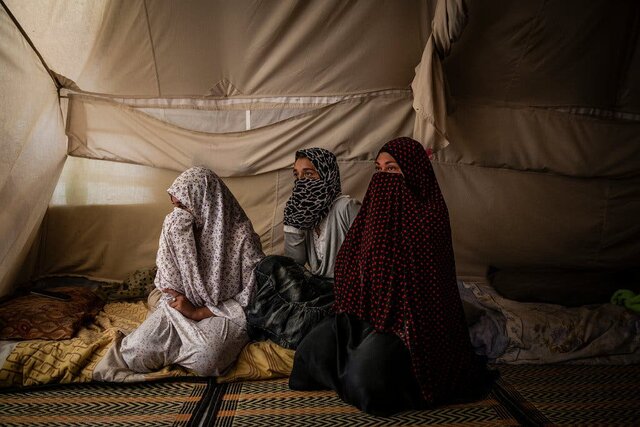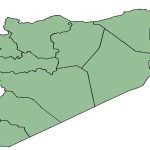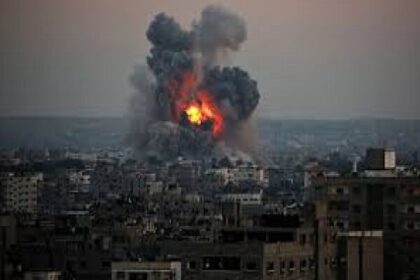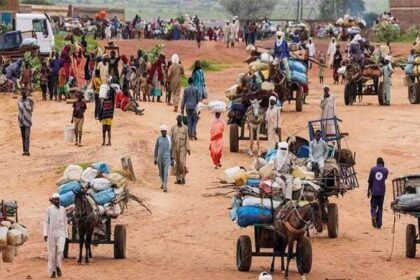Chaos in Syria and concern about ISIS camps
The American media wrote that with the current conditions of the Syrian Democratic Forces, the administration of the camps where the families of ISIS members are housed by them faced difficulties, concerns about the fate of people stationed in these camps and the re-emergence of ISIS have increased.
According to RCO News Agency, with the control of the Damascus ruling body over Syria after the fall of the government of “Bashar Assad” and the integration of rebel parties under the support of the Ministry of Defense of this country, the fate of the American Kurdish allies and the future of the camps and prisons under the control of the Syrian Democratic Forces, the location of thousands The number of ISIS members and their families and other militants is unknown.
The Washington Post newspaper report with this introduction states: The Syrian Democratic Forces, which form a coalition of US-allied Kurds in the north of this country, are under pressure from Arab militias supported by Turkey. The relationship between the Syrian Democratic Forces and Tahrir al-Sham, the ruling group in Syria, is also unclear.
Who lives in the camps under the control of the Syrian Democratic Forces?
The Washington Post further wrote: These camps are, in fact, open detention centers, and their population increased after the defeat and collapse of the ISIS caliphate in 2019. But the fact that the people present in these camps have not been convicted of committing a crime has increased human rights concerns about their situation. A large number of them are women and children, many of whom are not from Syria and are citizens of dozens of other countries in the region and the world. Some of them are also believed to have nothing to do with ISIS and have only fled from the violence caused by it.
According to Amnesty International, as of December 2023, nearly 47,000 were being held in al-Hol and Raj camps.
The “International Coalition”, a group of 87 countries that cooperated to defeat ISIS, announced in November that the number of people held in Al-Hol is 39,904. According to this coalition, the population of Al-Hol is decreasing due to the increase in repatriation of people to their countries.
But the factor that complicates the extradition of people from these camps is the refusal of their countries, especially in the West, to re-accept these citizens. Some of these countries have revoked the citizenship of those citizens who have been accused of being associated with ISIS. Iraq is one of the few countries that has cooperated for the extradition of its citizens from al-Hol and Raj.
Citizens of different countries of the region and the world among the families of ISIS forces in “Raj” camp.
Responsibility for camp management
The American media wrote: These camps are managed by the Syrian Democratic Forces, which is supported by the United States and receives military aid and military training from it. The Pentagon disclosed this month that about 2,000 US troops are stationed in Syria to prevent ISIS from regrouping with its remnants in Syria.
Türkiye associates the Syrian Democratic Forces with the Kurdistan Workers’ Party (PKK), which is considered a terrorist organization by Ankara and Washington.
Future developments
This report states: The transfer of power in Syria after the fall of Bashar al-Assad’s government has made it more difficult for the Syrian Democratic Forces to manage issues such as Al-Hol and Raj camps.
Amidst the existing chaos, the Syrian Democratic Forces have faced frequent attacks from one of their enemies, the “Syrian National Army”, which is supported by Türkiye. According to an agreement mediated by the US, the Syrian Democratic Forces have left the city of Manbij.
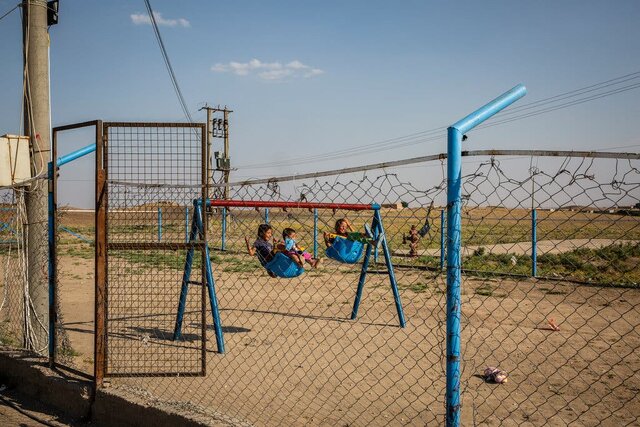
Children of the families of ISIS members in the Raj camp
In an interview with the Washington Post, “Sinem Mohammad”, the head of the American delegation of the political branch of the Syrian Democratic Forces, stated that the Syrian Democratic Forces are committed to protecting and managing these camps, but the increase in fighting may cause them to transfer their equipment and weapons from these areas.
In addition, another existing concern is the use of this vulnerability by the wandering forces of ISIS and its infiltrating agents. Mohammad said that ISIS espionage and infiltration agents have become more active since the opposition of Bashar al-Assad advanced and took control of Damascus.
He added: This is a threat to the entire region and means that all our efforts during these few years together with the United States and the international coalition to stop ISIS and end it will be in vain.
end of message
News>RCO NEWS
RCO




